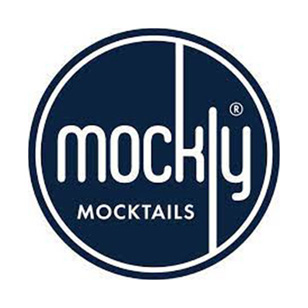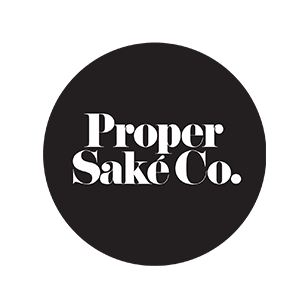Does Trademark Protection Matter At Exit?
Disclaimer: This post discusses general legal issues, but it does not constitute legal advice in any respect. This post is not a substitute for legal advice and is intended to generate discussion of various issues. No reader should act or refrain from acting on the basis of any information presented herein without seeking the advice of counsel. Cara Stone, LLP. and the author expressly disclaim all liability in respect of any actions taken or not taken based on any contents of this post. The views expressed herein are personal opinion. Reading, downloading, or covering this article does not create an attorney-client relationship.
Does trademark protection matter at exit?
The short answer is “yes.” However, probably not for the reasons you may expect. Trademark rights will rarely trigger big investments and they will never ensure success. It’s the lack of clear trademark rights that may cause significant problems when companies raise money or exit.
Founders often understand that they should apply to register their company’s trademarks with the U.S. Patent & Trademark Office (“USPTO”). Registering a trademark with the USPTO gives companies protection while they run their business, helps them avoid risks as they grow, and gives them extra leverage with investors when they fundraise or exit.
First, let’s briefly discuss what a USPTO trademark registration provides. A company may acquire trademark rights as soon as the mark is used in commerce, such as a sale of a company’s goods or services. Registering a trademark with the USPTO does not create substantive trademark rights . However, registration on the Principal Register does provide several key benefits, including:
- A presumption that the registrant has the exclusive right to use the registered trademark;
- A bar to registration of similar marks by other companies;
- Constructive notice to others of the registrant’s ownership claim, which may eliminate any justification or good faith defense by a third party;
- The registrant may file a trademark infringement lawsuit in federal court and, if the registrant prevails, may get monetary damages, treble damages and attorney fees in exceptional cases;
- The registrant may use the domestic registration as a basis to seek foreign trademark registrations; and
- The registration becomes incontestable after five years on the Principal Register, which supports conclusive evidence of the registrant’s exclusive rights to the trademark.
These are standard benefits which are well-known in the legal field. Far less-discussed is the value of exploring and registering your company’s trademarks when the company is founded, and the positive impact that can have on a company’s value at exit.
Founders often delay trademark legal work because trademark needs may not seem as immediate as other pressing needs. A new founder is often focused on establishing her business, showing positive earnings, putting out day-to-day “fires,” and managing her company in a way that will make it attractive to investors. Often no one presses the founder to get her trademark legal work done. Trademark clearance and protection can easily become an afterthought, which may create very expensive brand issues.
If a trademark dispute arises after the company has established an audience and a brand reputation, the company could end up in a multi-million dollar lawsuit or be forced to undergo a costly rebranding process. Litigation can tie up a company’s funds for years, and rebranding can divert the founder’s attention, momentum, and energy as the company grows.
Trademark rights will also affect investment potential. The truth is, investment deals often close despite trademark disputes. However, a trademark dispute will provide investors with negotiation leverage. This can result in a loss of returns or rights for the founder because the investors are taking on more risk.
Fortunately, a founder may take early measures to avoid costly trademark issues. An initial trademark “clearance” search will reveal whether another person or company has registered or applied to register a similar trademark which would bar registration of your trademark. If a conflict is discovered, then the company may re-brand early, which is far easier and less expensive than re-branding after the company has developed its business, brand, and customer following. If the trademark clears the search, then the company may apply to register its trademark. After registration the company will enjoy the presumption of prior, exclusive rights to their brand. Presumably, this would also eliminate trademark issues in deal negotiations and exposure to multi-million-dollar trademark lawsuits.
The value of initial trademark work cannot be overstated. On the legal side, a trademark clearance search, analysis, and USPTO trademark application typically costs less than $2,000 total per trademark. A sub-$2,000 investment to explore brand availability and potentially register a trademark is probably the best bang-for-your-legal-buck a start-up company can get given the exposures identified above.
The moral of the story is do not procrastinate. Companies should secure rights to their trademark and brand in the beginning stages. The process will likely save companies time and money down the road.
You May Also Be Interested In:
Preparing For Exit Part 1: Good Corporate Hygiene
Does A “Pitch Event” or “Demo Day” Constitute “General Solicitation” under the JOBS Act?!
Disclaimer: This post discusses general legal issues, but it does not constitute legal advice in any respect. This post is not a substitute for legal advice and is intended to generate discussion of various issues. No reader should act or refrain from acting on the basis of any information presented herein without seeking the advice of counsel. Cara Stone, LLP. and the author expressly disclaim all liability in respect of any actions taken or not taken based on any contents of this post. The views expressed herein are personal opinion. Reading, downloading, or covering this article does not create an attorney-client relationship.
Does trademark protection matter at exit?
The short answer is “yes.” However, probably not for the reasons you may expect. Trademark rights will rarely trigger big investments and they will never ensure success. It’s the lack of clear trademark rights that may cause significant problems when companies raise money or exit.
Founders often understand that they should apply to register their company’s trademarks with the U.S. Patent & Trademark Office (“USPTO”). Registering a trademark with the USPTO gives companies protection while they run their business, helps them avoid risks as they grow, and gives them extra leverage with investors when they fundraise or exit.
First, let’s briefly discuss what a USPTO trademark registration provides. A company may acquire trademark rights as soon as the mark is used in commerce, such as a sale of a company’s goods or services. Registering a trademark with the USPTO does not create substantive trademark rights . However, registration on the Principal Register does provide several key benefits, including:
- A presumption that the registrant has the exclusive right to use the registered trademark;
- A bar to registration of similar marks by other companies;
- Constructive notice to others of the registrant’s ownership claim, which may eliminate any justification or good faith defense by a third party;
- The registrant may file a trademark infringement lawsuit in federal court and, if the registrant prevails, may get monetary damages, treble damages and attorney fees in exceptional cases;
- The registrant may use the domestic registration as a basis to seek foreign trademark registrations; and
- The registration becomes incontestable after five years on the Principal Register, which supports conclusive evidence of the registrant’s exclusive rights to the trademark.
These are standard benefits which are well-known in the legal field. Far less-discussed is the value of exploring and registering your company’s trademarks when the company is founded, and the positive impact that can have on a company’s value at exit.
Founders often delay trademark legal work because trademark needs may not seem as immediate as other pressing needs. A new founder is often focused on establishing her business, showing positive earnings, putting out day-to-day “fires,” and managing her company in a way that will make it attractive to investors. Often no one presses the founder to get her trademark legal work done. Trademark clearance and protection can easily become an afterthought, which may create very expensive brand issues.
If a trademark dispute arises after the company has established an audience and a brand reputation, the company could end up in a multi-million dollar lawsuit or be forced to undergo a costly rebranding process. Litigation can tie up a company’s funds for years, and rebranding can divert the founder’s attention, momentum, and energy as the company grows.
Trademark rights will also affect investment potential. The truth is, investment deals often close despite trademark disputes. However, a trademark dispute will provide investors with negotiation leverage. This can result in a loss of returns or rights for the founder because the investors are taking on more risk.
Fortunately, a founder may take early measures to avoid costly trademark issues. An initial trademark “clearance” search will reveal whether another person or company has registered or applied to register a similar trademark which would bar registration of your trademark. If a conflict is discovered, then the company may re-brand early, which is far easier and less expensive than re-branding after the company has developed its business, brand, and customer following. If the trademark clears the search, then the company may apply to register its trademark. After registration the company will enjoy the presumption of prior, exclusive rights to their brand. Presumably, this would also eliminate trademark issues in deal negotiations and exposure to multi-million-dollar trademark lawsuits.
The value of initial trademark work cannot be overstated. On the legal side, a trademark clearance search, analysis, and USPTO trademark application typically costs less than $2,000 total per trademark. A sub-$2,000 investment to explore brand availability and potentially register a trademark is probably the best bang-for-your-legal-buck a start-up company can get given the exposures identified above.
The moral of the story is do not procrastinate. Companies should secure rights to their trademark and brand in the beginning stages. The process will likely save companies time and money down the road.
You May Also Be Interested In:
Preparing For Exit Part 1: Good Corporate Hygiene
Does A “Pitch Event” or “Demo Day” Constitute “General Solicitation” under the JOBS Act?!
























